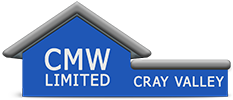
Introduction
In construction and DIY projects, the significance of using high-quality screws and fixings cannot be overstated. These seemingly small components ensure the structural integrity, durability, and overall safety of various constructions, whether a towering skyscraper or a humble backyard deck. In this blog post, we will delve into the importance of selecting suitable screws and fixings, exploring the various types available, and providing tips for ensuring secure installations.
Why Quality Matters
When it comes to screws and fixings, not all are created equal. The quality of these components can significantly impact the stability and longevity of your projects. Low-quality screws and fixings are prone to corrosion, bending, or breaking under stress, jeopardizing the integrity of the entire structure. Investing in high-quality screws and fixings not only ensures a more secure installation but also saves you from costly repairs and replacements down the line.
Types of Screws and Fixings
Wood Screws: Ideal for woodworking projects, wood screws feature coarse threads and a tapered point, providing excellent grip and resistance against withdrawal forces. They come in various lengths and materials, including stainless steel, brass, and coated steel, catering to different applications and environments.
Drywall Screws: Specifically designed for fastening drywall to studs, these screws feature fine threads and a bugle head that sits flush with the surface, reducing the risk of damage to the drywall paper. They are available in different lengths and are often coated for improved corrosion resistance.
Concrete Anchors: Concrete anchors, which come in various forms, including sleeve anchors, wedge anchors, and expansion anchors, are used to secure objects to concrete or masonry surfaces. They provide robust anchorage and are essential for projects such as installing handrails, shelving, or equipment mounts.
Machine Screws: Commonly used in metal-to-metal applications or where a fine-threaded fastener is required, machine screws feature a uniform diameter and pitch. They are available in different head types, including flat, round, and pan heads, and are often used with nuts or tapped holes.
Self-Drilling Screws: Also known as Tek screws, self-drilling screws feature a drill bit tip that eliminates the need for pre-drilling holes in metal surfaces. They are widely used in metal framing, roofing, and automotive applications, offering convenience and efficiency.
Tips for Secure Installations
Choose the Right Type: Select screws and fixings that are suitable for your specific application and materials. Consider factors such as load-bearing requirements, environmental conditions, and compatibility with other components.
Use Proper Installation Techniques: Follow manufacturer guidelines and recommended torque values when installing screws and fixings. Over-tightening can lead to material damage or thread stripping, while under-tightening may result in inadequate holding strength.
Pre-Drill Pilot Holes: When working with hardwoods or dense materials, pre-drilling pilot holes helps prevent splitting and ensures accurate screw placement. Use a drill bit slightly smaller than the screw diameter to create pilot holes of appropriate depth.
Mind the Corrosion: In outdoor or corrosive environments, opt for screws and fixings made from corrosion-resistant materials such as stainless steel or coated steel. Regularly inspect and maintain installations to prevent degradation over time.
Consider Load Distribution: Distribute loads evenly across multiple screws or fixings to minimize stress concentrations and enhance overall stability. Use appropriate spacing and configurations based on the weight and dimensions of the secured objects.
FAQs
Why is it essential to use high-quality screws and fixings?
High-quality screws and fixings ensure structural integrity, durability, and safety in construction and DIY projects, minimizing the risk of failure or damage over time.
What types of screws and fixings are available for different applications?
Various types include wood screws, drywall screws, concrete anchors, machine screws, and self-drilling screws, each designed for specific materials and environments.
How can I ensure a secure installation with screws and fixings?
Choose the right type for your application, follow proper installation techniques, pre-drill pilot holes as needed, and consider factors like load distribution and corrosion resistance.
What are the benefits of using corrosion-resistant screws and fixings?
Corrosion-resistant materials such as stainless steel or coated steel prolong the lifespan of installations, especially in outdoor or corrosive environments, by preventing rust and degradation.
How do I know if I've selected the correct screws and fixings for my project?
Consider factors such as load-bearing requirements, environmental conditions, material compatibility, and installation methods to ensure the chosen screws and fixings are suitable for your specific needs.
Conclusion
The quality of screws and fixings plays a pivotal role in the success and safety of construction and DIY projects. You can ensure secure and long-lasting installations by selecting high-quality components, adhering to proper installation techniques, and considering environmental factors. Whether you're building a deck, hanging shelves, or assembling furniture, investing in suitable screws and fixings is a small step that yields significant returns in terms of structural integrity and peace of mind.
Remember, a project is only as strong as its weakest link – don't let subpar screws and fixings compromise your hard work and vision.
If you want to take a closer look at our range of screws and fixings, click here. If you want to contact or find out more about this blog posts author, Dave click here.
